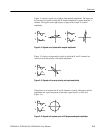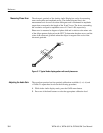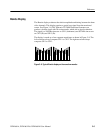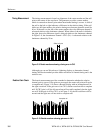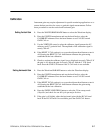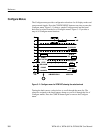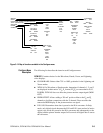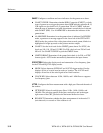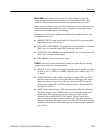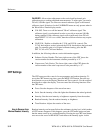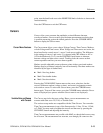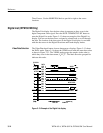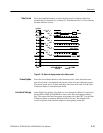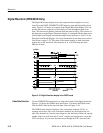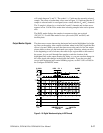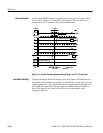
Reference
WFM 601A, WFM 601E & WFM 601M User Manual
3–11
SER ALARM. Selects which events cause the Alarm indicator to light. The
front-panel Alarm light can be activated by up to four different serial video
conditions. Press the adjacent bezel buttons to turn these alarms on or off.
When an alarm condition occurs, the Alarm light stays on for a minimum of one
second. If selected alarm conditions occur at a frequency greater than once per
second, the Alarm light stays on continuously.
When any of the following conditions are enabled and a condition occurs, the
alarm indicator turns on:
H MISSING VID. The input serial signal level drops below a preset threshold
(determined by the serial receiver).
H FULL FIELD CRC ERROR. The transmitted cyclical redundancy checksum
(CRC) does not match the actual CRC for the last video field.
H ACTIVE PIC CRC ERROR. The transmitted CRC does not match the actual
CRC for the last active picture region.
H FMT ERROR. A serial format error occurs.
FORMAT. Selects the format of the picture monitor out signal and the scanning
standard expected by the waveform monitor.
H MON OUT AS. Configures the analog component picture monitor out signal
as either Y, P
b
, P
r
, (YP
b
P
r
) or as GBR. Composite sync is added to the Y or
G channel.
H STANDARD. Selects the scanning standard, from either 525/2:1 or 625/2:1,
that the waveform monitor expects at the SER A and B inputs. This choice
affects the monitor sweep rates and the line selector. In AUTO mode, the
monitor selects either 525 or 625 line operation based on the detected field
rate (60 Hz or 50 Hz).
H SYNC. Selects either Direct or AFC synchronization of the internal timing.
The Direct mode uses the 27 MHz word clock as extracted from the serial
digital signal. This mode passes any signal jitter on to other internal
operations and to the MON OUT video signals. The AFC mode uses a
phase-locked loop circuit to produce a stable clock. The phase-locked loop
averages small-phase differences in the clock. The AFC mode is best in most
situations. Use the Direct mode when large, low-frequency jitter is present in
your system.



